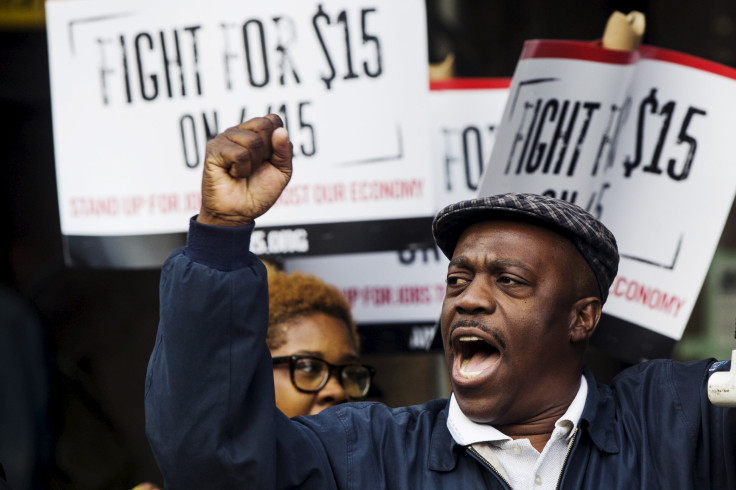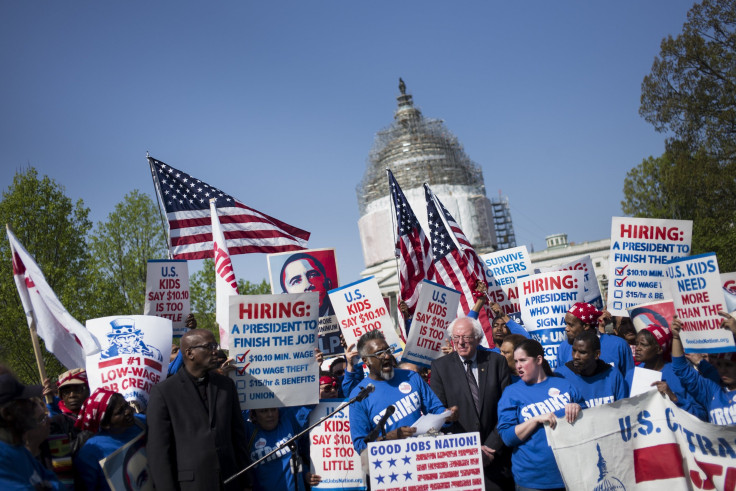Kansas City Minimum Wage To Get A Boost, As Doubts Linger Over New Rate's Constitutionality

Wage hikes are coming to the Heartland. Kansas City became the latest American metropolis to boost its minimum wage Thursday, with members of the city council approving a phased-in pay hike to $13 an hour by 2020. Although the figure falls short of the $15 rate championed by some labor activists, it marks another success for a union-backed low-wage workers’ movement that has managed to notch a series of victories over the past couple of years.
The Missouri municipality follows in the path of Los Angeles and Portland, Maine, both of which green-lighted minimum-wage hikes this year. Those moves came on the heels of similar increases in Seattle, San Francisco, Chicago and elsewhere. Kansas City is the first city in Missouri to vote to lift pay.
Council members acted over the objections of business groups that said the new rate will hinder job growth. The current statewide minimum is $7.65 an hour, or 40 cents more than the federal pay floor. The city’s first uptick, to $8.50 an hour, is set arrive next month, with the next one, to $9.82 an hour, coming in January 2017.
“Being this aggressive, this drastic, you’ll see some companies move or ... they will choose not to locate in Kansas City,” Bud Nicol, executive director of the Hotel and Lodging Association of Greater Kansas City, told the Kansas City Star.

Doubts linger over the new rate’s staying power. Some say there’s a chance it could go down in court, and activists who pushed the city to lift pay have acknowledged as much. A state law adopted in 1998 prohibits Missouri’s most densely populated counties and cities from enacting minimum wages higher than the state’s pay floor. St. Louis voters passed a wage bump for city contractors shortly after that. A circuit court judge struck that pay hike down, but also cast doubt on the 1998 law itself. Today, a bevy of interpretations abound over the constitutionality of local-level pay increases in the state.
Other questions center on the city’s enforcement ability. A top city official said it might take 12 to 18 months to put the proper oversight in place, according to the Star, while Mayor Sly James, who’s portrayed himself as sympathetic to both sides of the debate, called the new law “a blunt instrument that’s being put together on the fly.”
Labor advocates still haven’t ruled out the possibility of a ballot initiative to hit $15 an hour. The groups say they’ve already collected the requisite amount of signatures. In the meantime, St. Louis is continuing to debate raising its minimum wage.
© Copyright IBTimes 2025. All rights reserved.






















